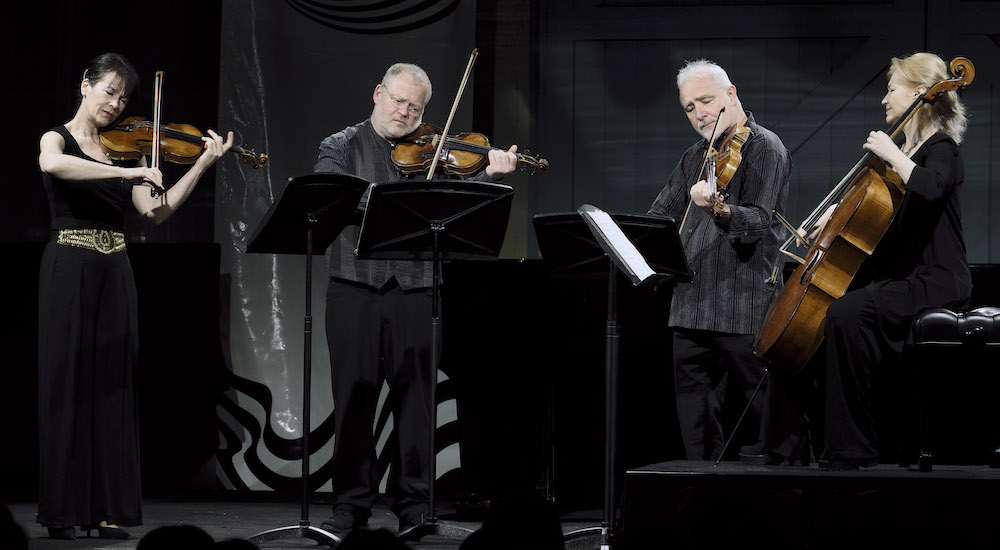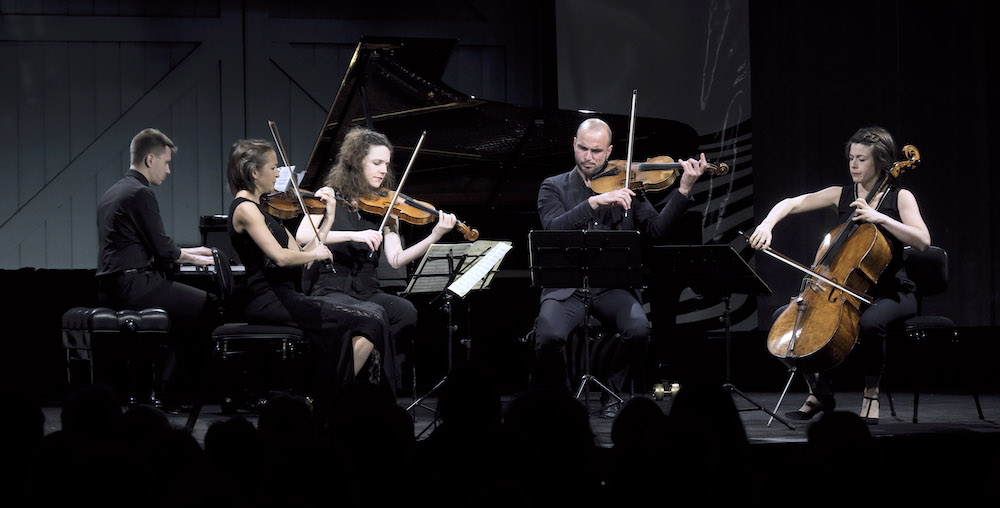Sir Edward Elgar would have been horrified by all the current political shenanigans over Brexit – in both Britain and Europe – and undoubtedly would have been vehemently opposed to any idea of Britain exiting the EU.
He had strong connections with Europe. As Roland Peelman and Marilyn Chalkley noted in a piece intended for the Canberra International Music Festival program booklet, “Elgar loved German music and found the war with Germany (WWI) difficult. They went on to quote Julian Rushton, an English musicologist and Elgar scholar, who argued that Elgar was in fact “quintessentially European”, and “the only reason his music sounds English is that it sounds like Elgar, whom we know to be English.”
On the other side of the channel, there is composer, teacher and performer, César Franck. He was born in what is now Belgium to German parents and spent his adult life working in Paris. Had he lived through WWI he doubtless would been have been just as conflicted as Elgar.
 The Brodsky Quartet at the Canberra International Music Festival. Photo © Peter Hislop
The Brodsky Quartet at the Canberra International Music Festival. Photo © Peter Hislop
So this concert was a kind of cross-channel debate with works by Elgar performed by the English string quartet, the Brodsky Quartet, and Franck’s piano quintet performed by the French string quartet, Quatuor Voce (whose cellist, Lydia Shelley, is English!), along with guest artist, the Russian pianist Vyacheslav Gryaznov.
And there would be no better neutral territory for this debate than on the other side of the equator – and the world – in Canberra.
The Brodskys opened proceedings with three of Elgar’s quite beautiful and contrasting works that might be called miniatures. Chanson de matin (whose melody is quoted in the second movement of the Op. 83 E Minor string quartet, performed later in the program) and its companion piece, Chanson de nuit, sandwiched La capricieuse, all written around 1890. (The three titles are in French, because the publisher thought they would sell better than their English equivalents!)
Very early on it became obvious that the Brodsky Quartet is made up of supreme talent. Their cohesion and perfect blending were inspiring as they passed the lead from one to the other in seamless transition. This could happen in single phrases with the music passing from one player to the next. Their balance was so fine the eyes could follow the sound. They took the light, rather transparent character of these pieces and made them charming and delightful.
The string quartet, in three movements, was quite a contrast. Written in 1918, the ravages of WWI would have been very much on Elgar’s mind. As such it rambles somewhat, but it does explore what would have been very unusual compositional stylings for its day, exploring new techniques and sounds. Indeed, a century on, it would still be regarded as revolutionary, taking its audience outside its comfort zone. The Brodsky Quartet’s then cellist, Carl Fuchs, had asked Elgar for it and he dedicated it to the group.
The Brodsky Quartet gave this piece a brilliant performance. This was especially so at the end of the dark and brooding second movement, where the music descends from quite robust and complex harmonic structures to simple harmonies that gradually fade away almost to nothing. Only the finest string players would be able to achieve what was intended. The Brodskys did it with great style and assuredness.
 Quatuor Voce and Vyacheslav Gryaznov at the Canberra International Music Festival. Photo © Peter Hislop
Quatuor Voce and Vyacheslav Gryaznov at the Canberra International Music Festival. Photo © Peter Hislop
The second half of the program was given over to Franck’s Piano Quintet in F Minor, performed by Quatuor Voce, with Vyacheslav Gryaznov at the piano.
Written in 1879, the compositional style was ahead of its time; it does not fit comfortably with the expected Romantic style of the period. Brahmsian it is not! A lengthy, brooding start to the first movement eventually makes way for high drama through much of it. Today’s film music composers could take a lesson or two from this movement. Perhaps both Franck and Elgar were revolutionaries of their day.
The second movement, marked Lento con molto sentimento, is just sad, while the third demands fiery playing leading up to a long coda and a big, burly finish.
Quatuor Voce gave this very big and demanding work a brilliant performance. The balance between the piano and strings was deeply profound, each giving way to the other, and the whole group supporting a single lead instrument when called upon in the music to do so. Their cohesion was rock solid in every single detail, and their timing so precise it was breathtaking. A standing ovation was the result.
So, who won the debate? Well, one could never say. But let there be no doubt that, while Britain might be suffering Brexit blues, music will forever provide the answers that politics cannot.
The Canberra International Music Festival takes place at venues around Canberra until May 12












Comments
Log in to join the conversation.